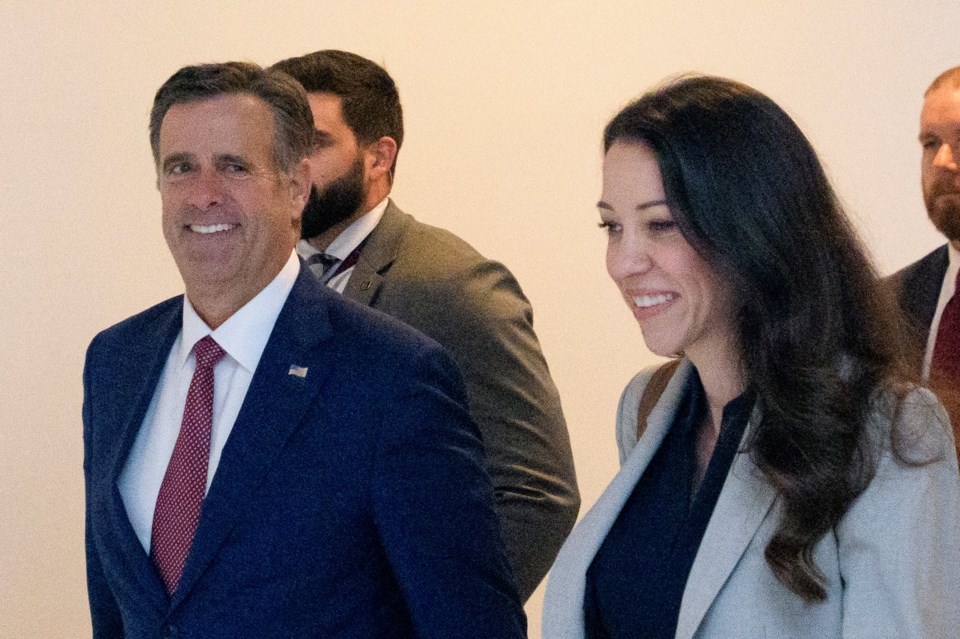WASHINGTON (AP) — A declassified CIA memo released Wednesday challenges the work intelligence agencies did to conclude that Russia interfered in the 2016 presidential election because it wanted Republican Donald Trump to win.
The memo was written on the orders of CIA Director John Ratcliffe, a Trump loyalist who spoke out against the Russia investigation as a member of Congress. It finds fault with a 2017 intelligence assessment that concluded the Russian government, at the direction of President Vladimir Putin, waged a covert influence campaign to help Trump win.
It does not address that multiple investigations since then, including a report from the Republican-led Senate Intelligence Committee in 2020, reached the same conclusion about Russia’s influence and motives.
The eight-page document is part of an ongoing effort by Trump and close allies who now lead key government agencies to revisit the history of the long-concluded Russia investigation, which resulted in criminal indictments and shadowed most of his first term but also produced unresolved grievances and contributed to the Republican president's deep-rooted suspicions of the intelligence community.
The report is also the latest effort by Ratcliffe to challenge the decision-making and actions of intelligence agencies during the course of the Russia investigation.
A vocal Trump supporter in Congress who aggressively questioned former special counsel Robert Mueller during his 2019 testimony on Russian election interference, Ratcliffe later used his position as director of national intelligence to declassify Russian intelligence alleging damaging information about Democrats during the 2016 election even as he acknowledged that it might not be true.
The new, “lessons-learned” review ordered by Ratcliffe in May was meant to examine the tradecraft that went into the intelligence community's 2017 assessment on Russian interference and to scrutinize in particular the conclusion that Putin “aspired” to help Trump win.
The report cited several “anomalies” that the authors wrote could have affected that conclusion, including a rushed timeline and a reliance on unconfirmed information, such as Democratic-funded opposition research about Trump’s ties to Russia compiled by a former British spy, Christopher Steele.
The report takes particular aim at the inclusion of a two-page summary of the Steele dossier, which included salacious and uncorroborated rumors about Trump's ties to Russia, in an annex of the intelligence community assessment. It said that decision, championed by the FBI, “implicitly elevated unsubstantiated claims to the status of credible supporting evidence, compromising the analytical integrity of the judgment.”
But even as Ratcliffe faulted top intelligence officials for a “politically charged environment that triggered an atypical analytic process,” his agency's report does not directly contradict any previous intelligence.
Russia's support for Trump has been outlined in a number of intelligence reports and the August 2020 conclusions of the Senate Intelligence Committee, then chaired by Sen. Marco Rubio, who now serves as Trump's secretary of state. It also was backed by Mueller, who in his 2019 report said that Russia interfered on Trump's behalf and that the campaign welcomed the aid even if there was insufficient evidence to establish a criminal conspiracy.
“This report doesn't change any of the underlying evidence — in fact it doesn't even address any of that evidence,” said Brian Taylor, a Russia expert who directs the Moynihan Institute of Global Affairs at Syracuse University.
Taylor suggested the report may have been intended to reinforce Trump's claims that investigations into his ties to Russia are part of a Democratic hoax.
“Good intelligence analysts will tell you their job is to speak truth to power," Taylor said. "If they tell the leader what he wants to hear, you often get flawed intelligence.”
Intelligence agencies regularly perform after-action reports to learn from past operations and investigations, but it's uncommon for the evaluations to be declassified and released to the public.
Ratcliffe has said he wants to release material on a number of topics of public debate and has already declassified records relating to the assassinations of President John Kennedy and his brother, Sen. Robert F. Kennedy, as well as the origins of COVID-19.
David Klepper And Eric Tucker, The Associated Press



